Weekend Diversion: A Slice of Art
How glassworker Loren Stump’s artwork is pushing the boundaries of the artform into uncharted waters.
“I guess I just prefer to see the dark side of things. The glass is always half-empty. And cracked. And I just cut my lip on it. And chipped a tooth.” -Janeane Garofalo
While it’s science that illuminates the physical reality behind our experiences in this Universe, it’s often left to art to illuminate our inner world. This weekend, listen to the Puppini Sisters’ (celebrating their 10th anniversary) wonderful interpretation of Blondie’s classic, Heart Of Glass,
while I share with you a fantastic innovation from the art world.
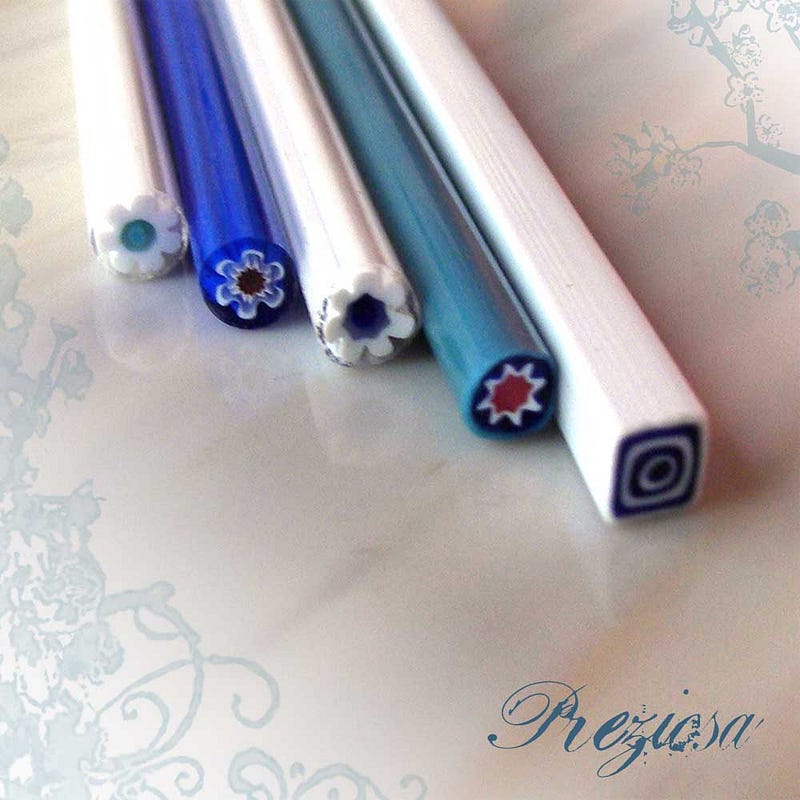
What you see, above, is an example of the murrine style of glass work, where long rods of colored glass are fused together and then cut into slices, creating beautiful cross-sectional patterns. These patterns can either serve as finished pieces themselves, or can be further worked with to be incorporated into a larger piece, such as a vessel, sculpture or blown glass.
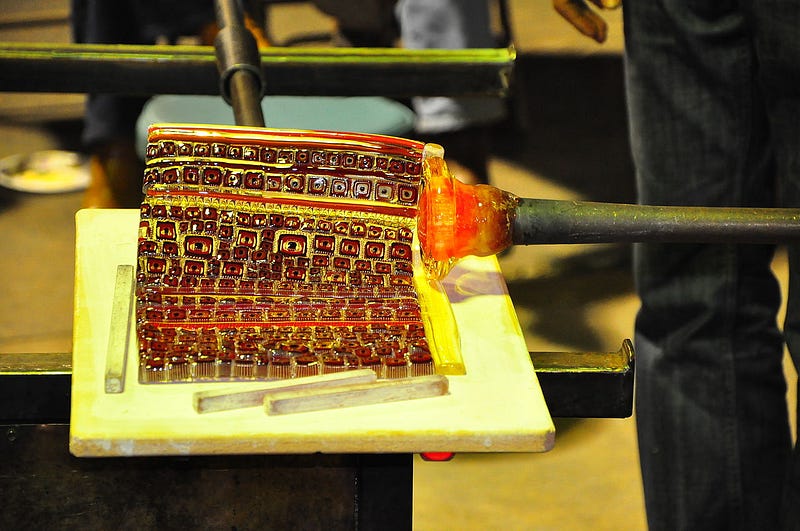
The results, quite obviously, can be extremely beautiful, intricate and varied.
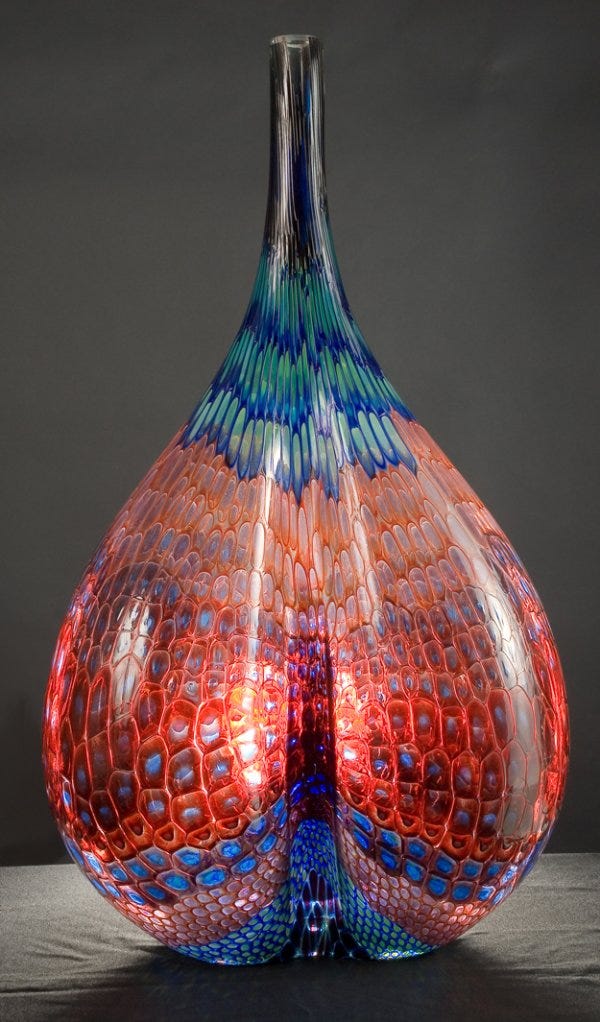
Well, what if, instead of using simple patterns in the murrine style and manipulating them to create complex structures afterwards, you planned the piece so intricately that when you sliced into the glass rods that had been merged together, what you see is itself, in fact, a work of art?
I imagine that’s what artist Loren Stump must have asked himself one day, because what he’s done with the murrine style is something that I don’t think has ever been done before.
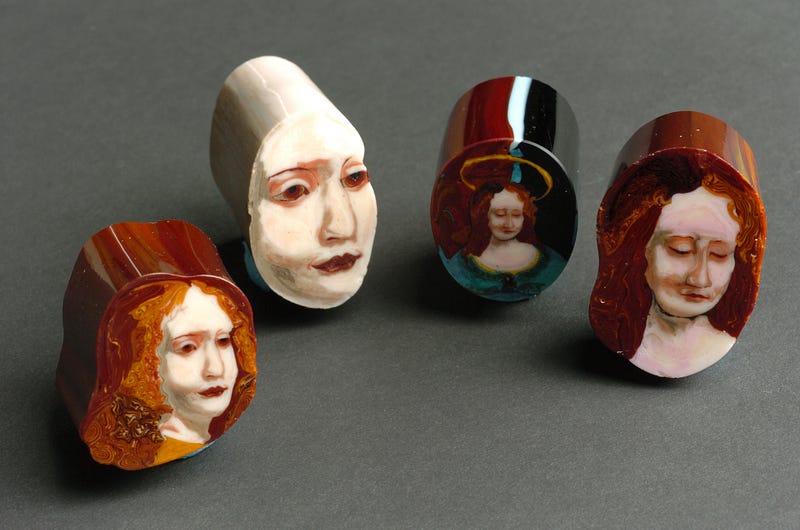
What appears to be just a simple, oddly-shaped lump of glass with a few colorations throughout it reveals an intricate, artistic portrait or scene on the inside! By using the murrine technique so that when a cross-sectional slice is taken, a pre-planned work of art appears, Loren Stump has created something completely new: murrine portraiture!
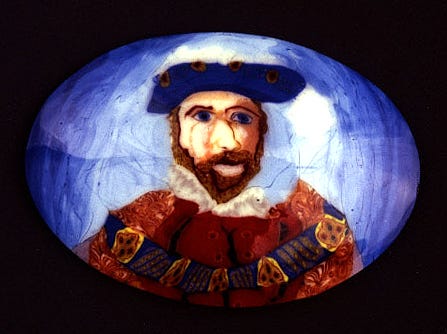
For example, above is Cortez; below are James Joyce and Walt Whitman.
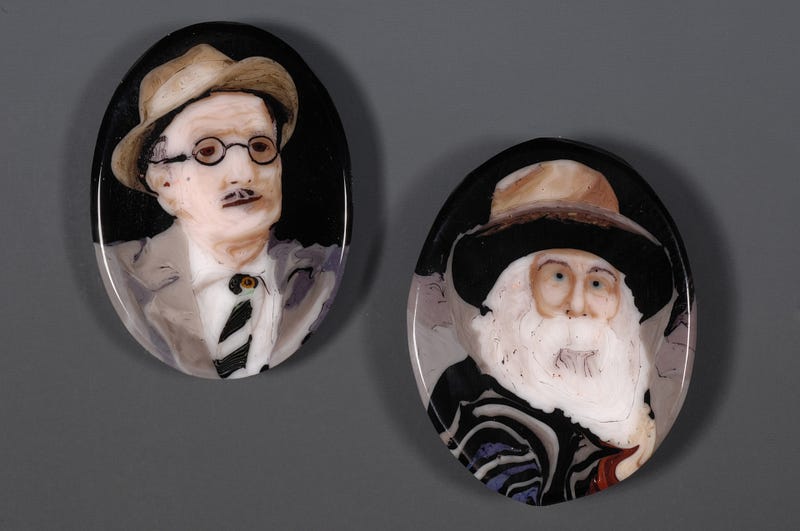
But by far the most spectacular — and I mean this in the best sense of the word, but the most ridiculous — application of this technique has been to the recreate the 15th century Leonardo da Vinci painting, the Virgin of the Rocks. In glass.
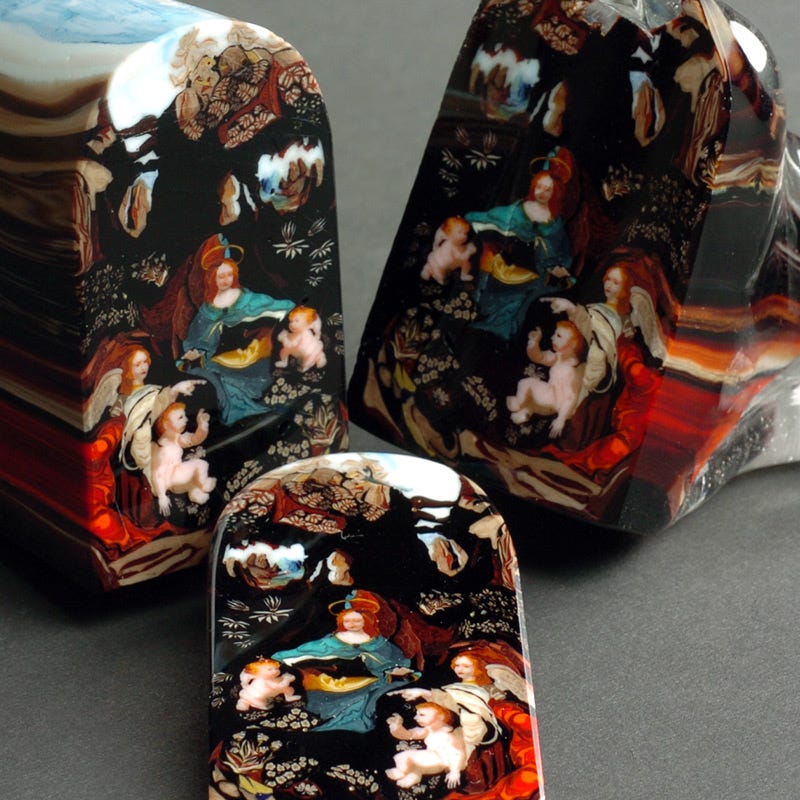
The detail in here is really unbelievable; let me show you a close-up view!
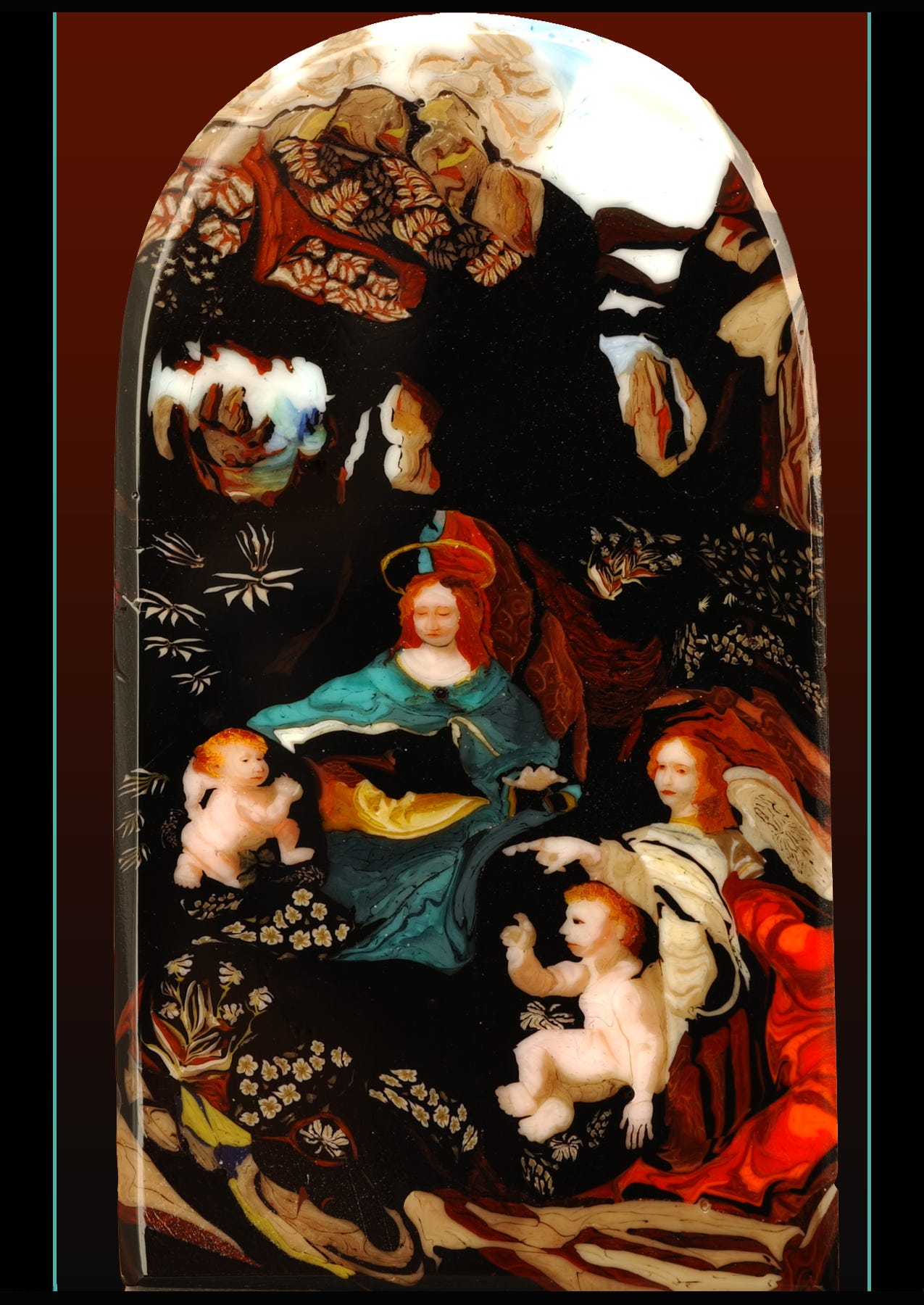
It should come as no surprise that each slice of this work of art has sold for $5,000, and it should also come as no surprise that it’s taken Stump some 35 years to master this new technique. Murrine glass has been around for around four millenia, and yet I don’t think anyone’s ever taken it to the levels that Loren Stump has!
In addition, Loren also does other fantastic 2D and 3D glasswork, and you can check it all out here.
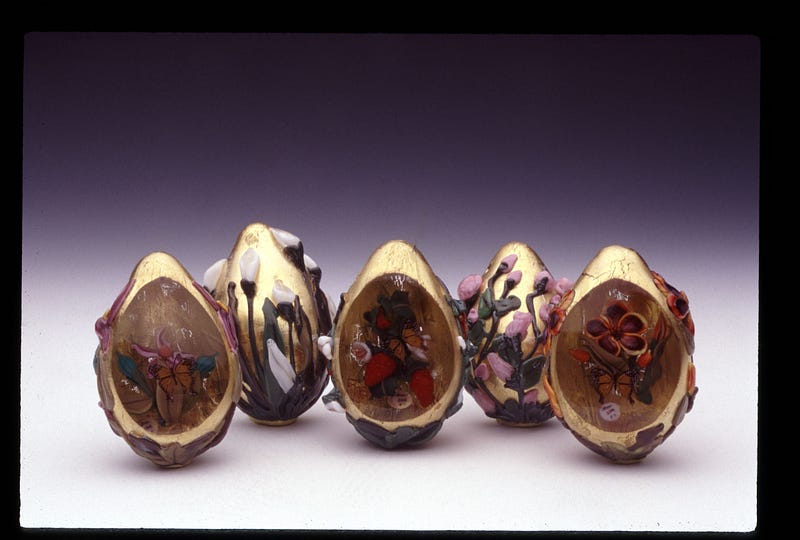
For a little taste of glassworking in general — after all, Loren also does blown glass, beads & jewelry (above), paperweights and sculptures — take a look at this brief video of Loren in action teaching about techniques and giving a demonstration on how to create a “simple” glass figurine.
Thanks to This is Colossal and Lost at E Minor for bringing this onto my radar. I hope you enjoyed this delightful romp through a literally cutting-edge set of art works, and I’ll see you back here during the week for more wonders and joys of the natural world and Universe!
Enjoyed this? Leave a comment at the Starts With A Bang forum on Scienceblogs! And if you missed the best comments of the past week — along with my responses — check them out here!





